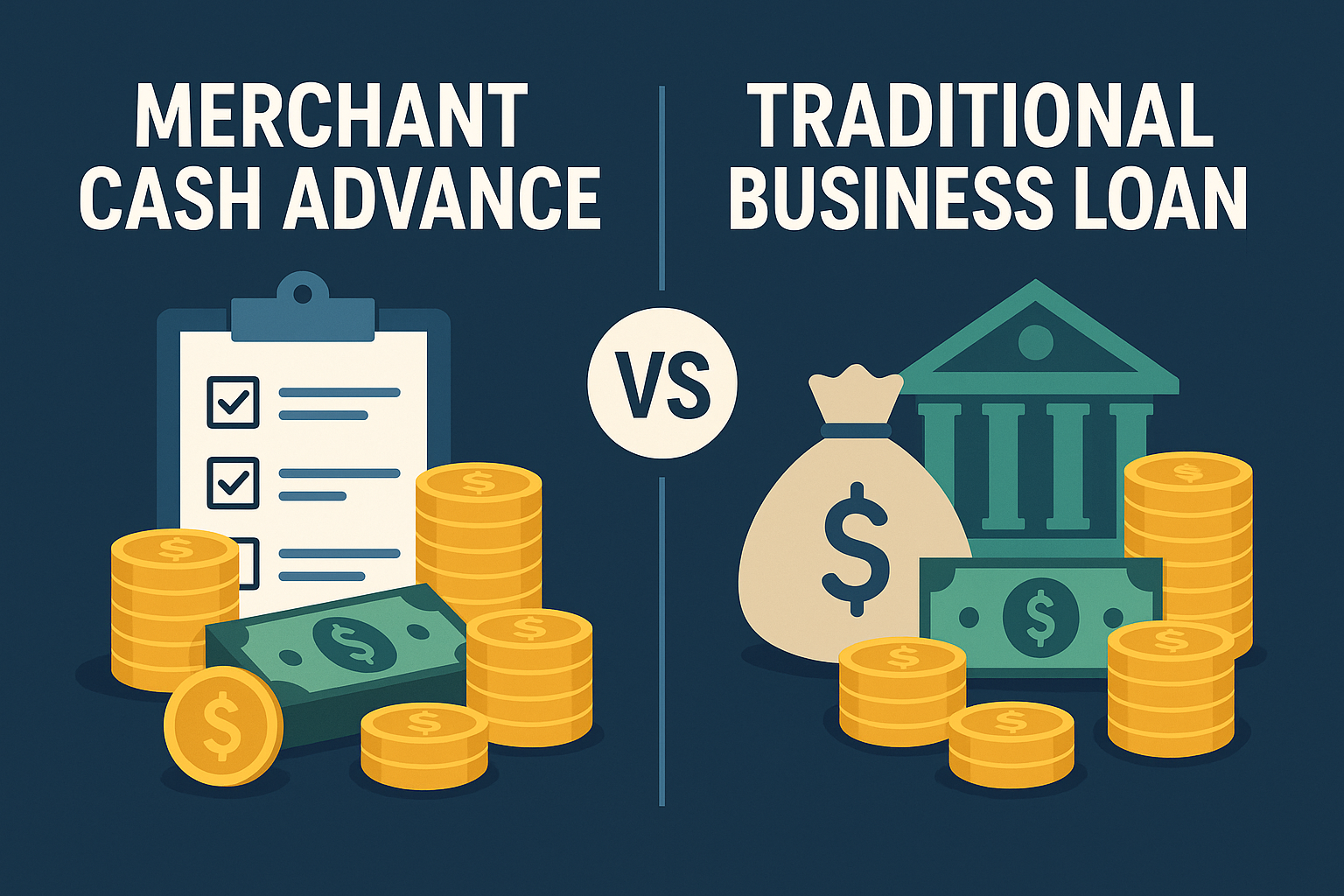In today’s fast-paced business environment, access to working capital can make or break a company’s growth. For small and mid-sized business owners, two common financing options stand out: Merchant Cash Advances (MCAs) and Traditional Business Loans. While both provide funding, they are fundamentally different in how they work, how they’re repaid, and who they’re best suited for.
In this article, we’ll break down the pros, cons, costs, and ideal use cases so you can make an informed decision for your business.
What Is a Merchant Cash Advance?
A Merchant Cash Advance is not a loan—it’s an advance against your future sales. A funding provider gives you a lump sum of cash upfront, and in exchange, you agree to repay it through a percentage of your daily or weekly sales, usually via automatic ACH withdrawals.
-
Speed of Funding: Often approved in 24–48 hours.
-
Repayment Structure: Based on a fixed factor rate (not an interest rate).
-
Best for: Businesses with consistent credit card or debit card sales, such as restaurants, retail stores, or service providers.
What Is a Traditional Business Loan?
A Traditional Business Loan is a more familiar type of financing, offered by banks, credit unions, or SBA-backed programs. You receive a fixed loan amount and repay it over a set term with interest.
-
Approval Timeline: Can take weeks or even months.
-
Repayment Structure: Monthly payments, typically fixed.
-
Best for: Established businesses with strong credit history and collateral.
Key Differences Between MCAs and Business Loans
| Feature | Merchant Cash Advance (MCA) | Traditional Business Loan |
|---|---|---|
| Approval Time | 24–48 hours | 2–8 weeks |
| Credit Requirements | Flexible, revenue-based | Strict, credit-score driven |
| Repayment | Daily/weekly ACH from sales | Monthly fixed payments |
| Cost of Capital | Higher (factor rates 1.1–1.5+) | Lower (APR typically 5–15%) |
| Collateral Required | None | Often required |
| Use of Funds | Short-term cash flow, inventory, emergencies | Long-term investments, expansion, equipment |
Pros and Cons of a Merchant Cash Advance
Pros
-
Quick approval and funding
-
Easy qualification (based on revenue, not credit score)
-
Payments adjust with sales volume
Cons
-
Higher overall cost of capital
-
Daily/weekly repayment can strain cash flow
-
Limited transparency compared to loans
Pros and Cons of a Traditional Business Loan
Pros
-
Lower interest rates and overall cost
-
Predictable monthly payments
-
Long repayment terms (1–10 years)
Cons
-
Long, paperwork-heavy application process
-
Requires strong credit and collateral
-
Slow access to funds (weeks or months)
Which Is Right for Your Business?
-
Choose an MCA if you need fast funding, have strong daily sales, and are comfortable with short-term, higher-cost financing.
-
Choose a Business Loan if you qualify for lower rates, can wait through the application process, and want predictable long-term financing.
For many businesses, the decision comes down to urgency vs. cost. If cash flow emergencies or opportunities arise, an MCA can be a lifeline. For planned growth and stability, a traditional loan is the more affordable path.
Final Thoughts
Both Merchant Cash Advances and Traditional Business Loans have their place in small business financing. The key is understanding your company’s current financial health, future goals, and tolerance for repayment structures.
Before committing, always compare multiple offers, calculate the true cost of capital, and choose the option that aligns with your long-term business strategy.
